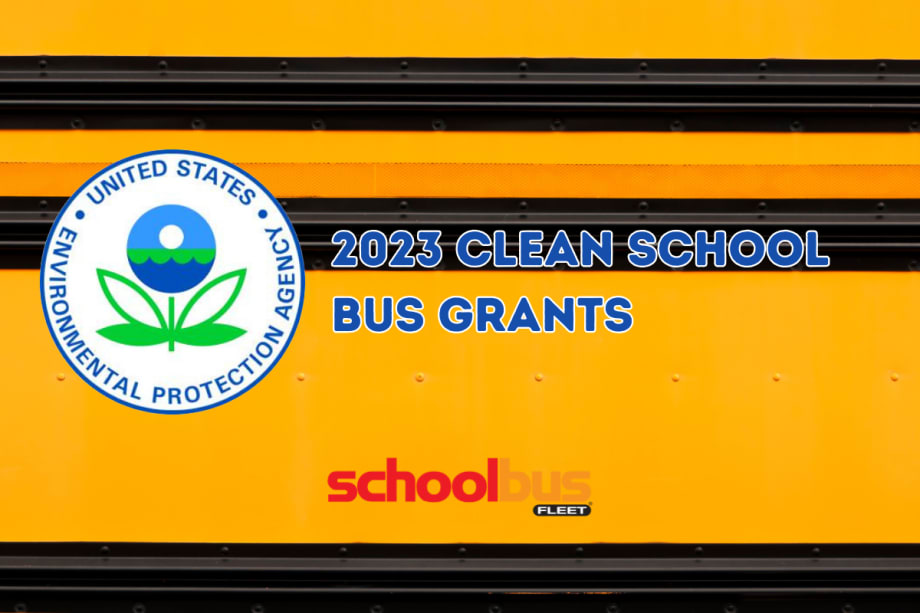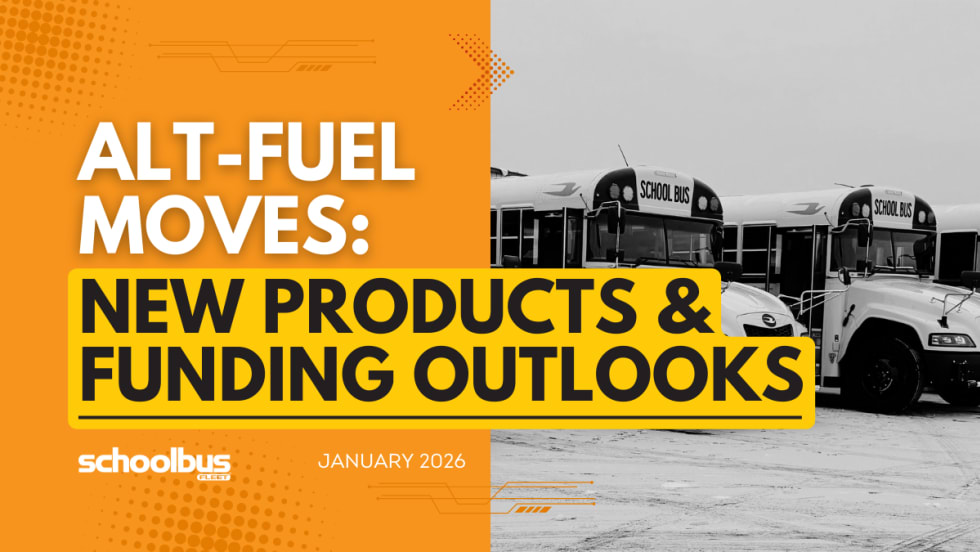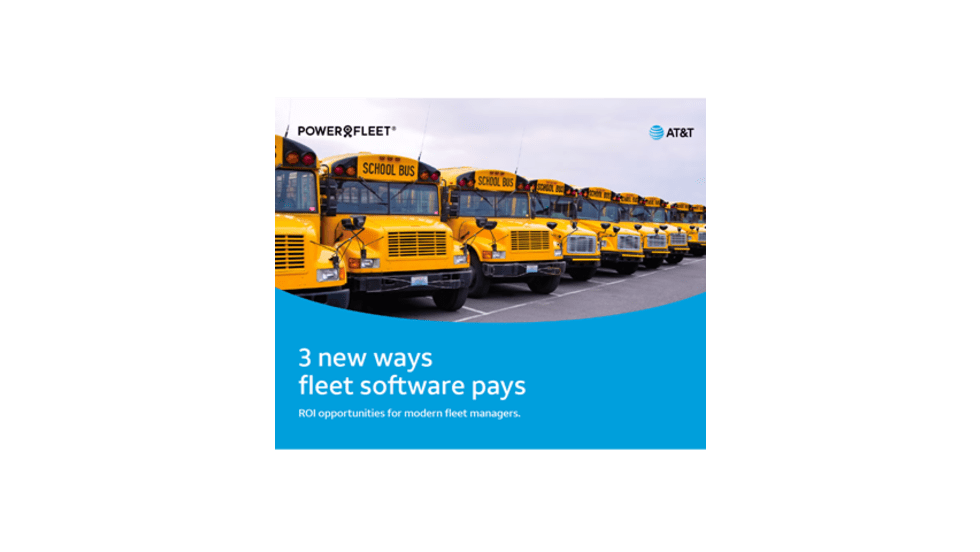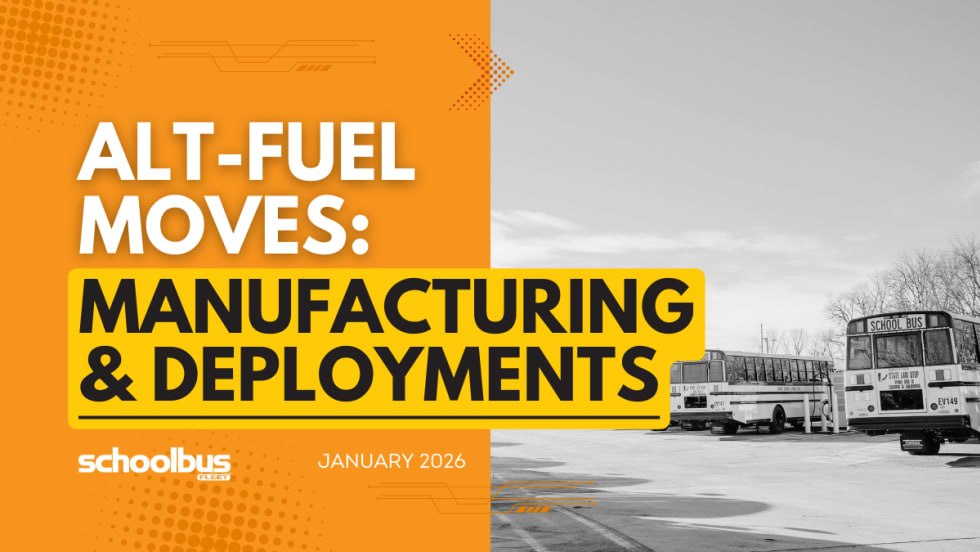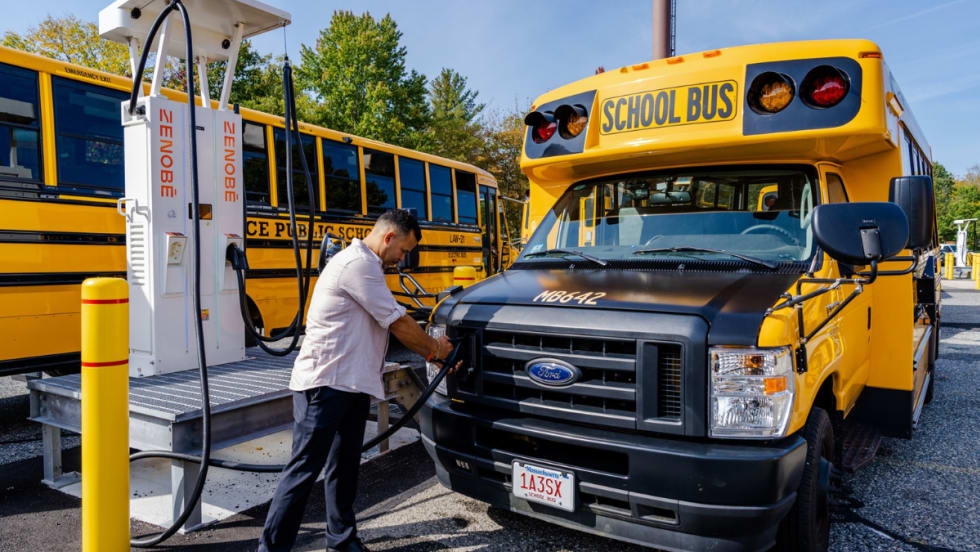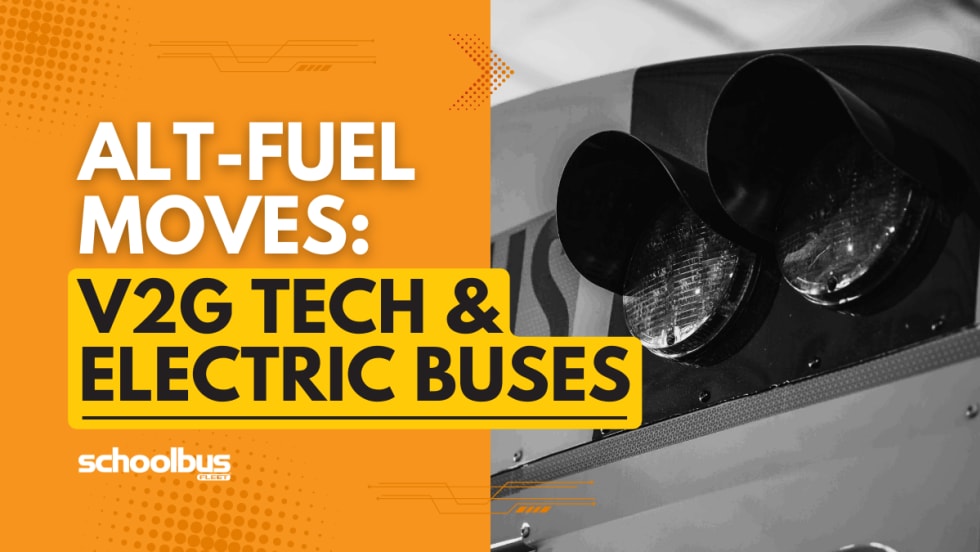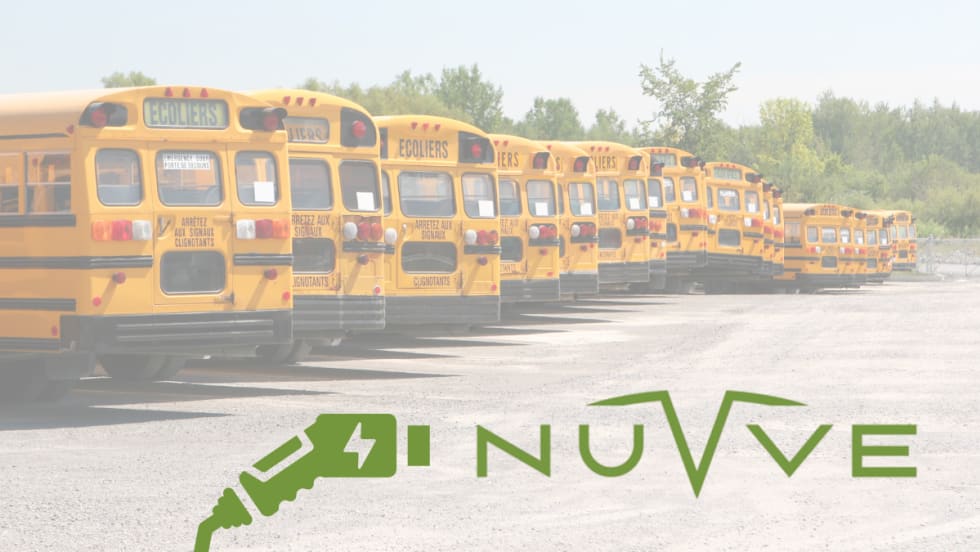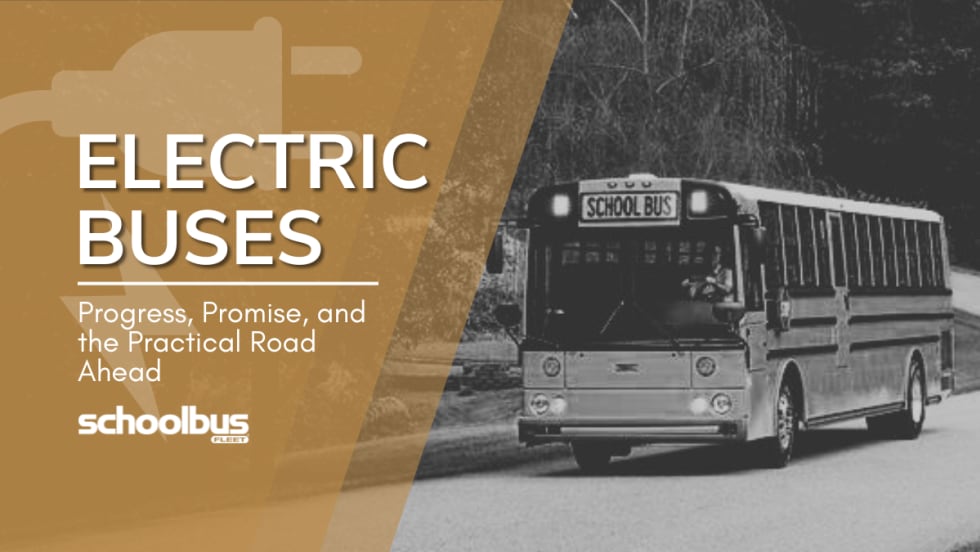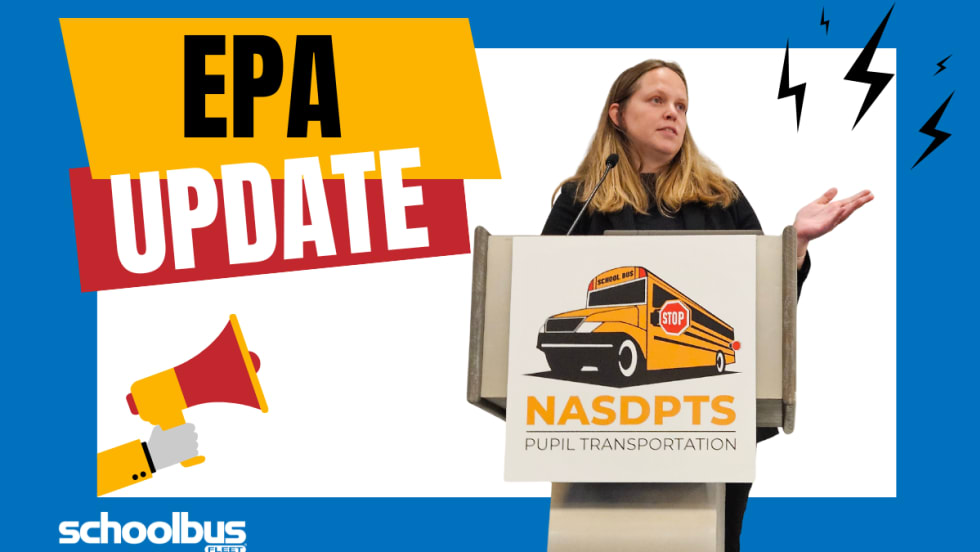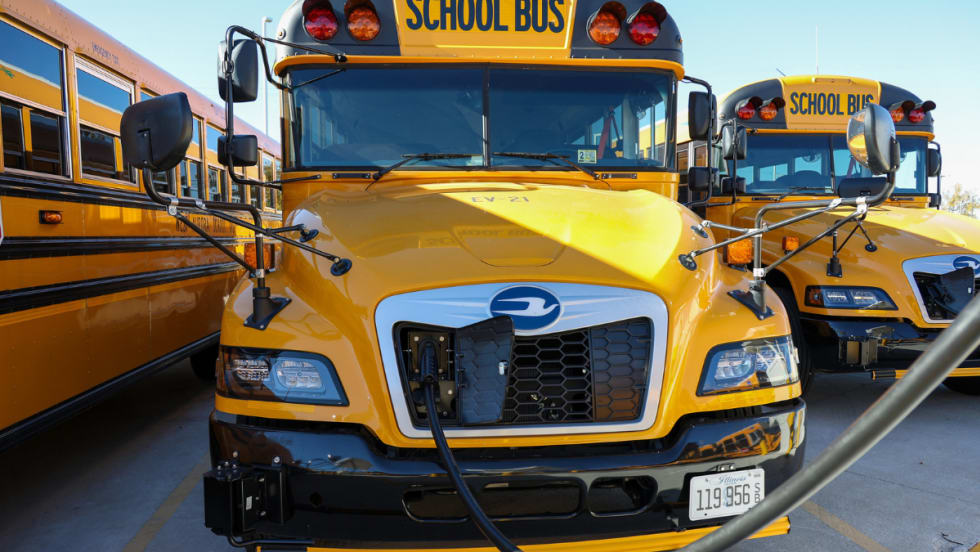The U.S. Environmental Protection Agency has announced the selection of 67 applicants to receive nearly $1 billion through the EPA's first round of its Clean School Bus Program grants competition.
About the Grant Awardees
The awards will help selectees purchase more than 2,700 clean school buses in 280 school districts serving more than seven million students across 37 states.
By accelerating the transition to low- and zero-emission vehicles, these awards will improve air quality for children and their families and advance environmental justice, all while boosting the economy and creating good-paying jobs.
After an extensive review process, the EPA Clean School Bus Program selected the top tier applicants to receive this investment in their communities.
Prioritized school districts in low-income, rural, and/or Tribal communities make up approximately 86% of the projects selected for funding.
The program delivers on President Biden’s Justice40 Initiative, which aims to deliver 40% of the overall benefits of certain federal investments to disadvantaged communities that are marginalized, underserved and overburdened by pollution.
Here's how the alt-fuel-powered bus purchase plans break down:
You can find information on the grant awardees through the interactive map on the EPA Clean School Bus Program website. There are two maps shown: the rebate awardees and the grant awardees.
Impact With a Far Reach
With this latest round of funding, the EPA’s Clean School Bus Program has awarded nearly $2 billion and funded approximately 5,000 electric and low-emission school buses nationwide.
In April 2023, the EPA announced the availability of at least $400 million for its 2023 Clean School Bus Grants. The grant application period closed in August 2023 with an outstanding response from applicants seeking to purchase electric and low-emission school buses.
Given the overwhelming demand and large number of high-scoring applications — including applicants in low-income communities — the EPA has nearly doubled the amount of funding that will be awarded this round to approximately $965 million.
“Every school day, 25 million children ride our nation’s largest form of mass transit: the school bus. The vast majority of those buses run on diesel, exposing students, teachers, and bus drivers to toxic air pollution,” Vice President Kamala Harris said. “Today, we are announcing nearly $1 billion to fund clean school buses across the nation. As part of our work to tackle the climate crisis, the historic funding we are announcing today is an investment in our children, their health, and their education. It also strengthens our economy by investing in American manufacturing and America’s workforce.”
The Clean School Bus Program is having far-reaching effects across school districts and their surrounding communities. Air pollution from older diesel engines is linked to asthma and other conditions that harm students’ health and can cause them to miss school.
Phasing out these older diesel engines, which disproportionately affect communities of color and Tribal communities, ensures cleaner air for students, bus drivers, school staff working near bus loading areas, and the communities through which the buses drive each day.
"Today we’re once again accelerating the transition to electric and low-emission school buses in America, helping to secure a healthier future where all our children can breathe cleaner air,” EPA Administrator Michael S. Regan said. “I’ve sat next to students on their very first clean school bus ride and their excitement reflects the power of good policy. Thanks to President Biden’s historic investments in America, thousands more school buses will hit the road in school districts across the country, saving school districts money and improving air quality at the same time.”
2023 Clean School Bus Rebate Program Applications Open
The EPA is currently accepting applications for the 2023 Clean School Bus Rebate Program through Jan. 31, 2024.
The EPA encourages applicants not selected for the 2023 Clean School Bus Grant Program – and those that did not apply – to participate in current and future funding rounds.
Once the application period for the 2023 rebate program closes and the school districts selected are notified, school districts can proceed with purchasing new buses and eligible infrastructure.
Selectees will need to submit Payment Request Forms with purchase orders demonstrating they have ordered new buses and eligible infrastructure.
After the selectees submit the proper forms, they will be eligible to receive rebate funds. All selectees must submit a Utility Partnership Agreement to verify that the school district’s electric utility provider is aware of the school district’s rebate application.
To ensure the successful implementation of the selected projects funding electric buses and charging infrastructure, the EPA has created a Utility Partnership Template which encourages early and robust engagement between the applicant and their utility company.
Additional details can be found in the Notice of Funding Opportunity on the Clean School Bus Program website.
These latest awards follow over $875 million obligated to new buses from the Clean School Bus Program’s 2022 Rebates.
The rebates funded the replacement of 2,366 buses at 372 school districts to further improve air quality in and around schools, advance environmental justice, reduce greenhouse gas pollution fueling the climate crisis, and accelerate America’s leadership in developing the clean vehicles of the future.




